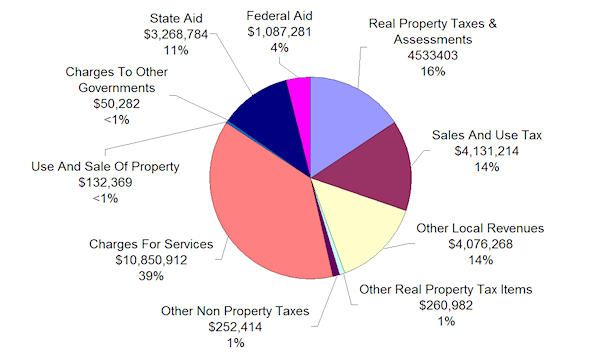
I recently ran across an article from the NY Post, published last year that was interesting to me given the idea that’s been floating around in the news and in discussions lately of bringing in a state control board to sort out Amsterdam’s finances.
The Post reports that legislation is currently under review by state lawmakers to create one centralized “super control board” to handle a large number of cities, towns and counties in NY who are facing severe fiscal problems.
According to the Post, the key factor that control boards have is this…
[The control board] wouldn’t completely replace the locally elected officials. But it would provide them with the political “cover’’ many privately say they need to stand up to the powerful unions, which have consistently resisted spending cuts.
So in the context of the traditional battle between labor vs management, it’s not hard to see why Republicans (and Republican leaning pundits) might favor this type of intervention. According to the Post, control boards have proven to be an effective union-busting method.
Personally, I am neutral as far as unions go. I think they are beneficial in balancing the power of big business, however big unions can also make it difficult for small cities like Amsterdam to cut costs when it needs to. And I think right now, the city needs to cut costs in order to stay healthy long-term.
However, I believe that calling for a control board at this point is premature. Deputy Controller David Mitchell has – in fact – made good progress in correcting the city’s finances in the nine months that he has been at the job so far. He’s reconciled nearly half the accounts and has succeeded in finally getting our AUD report out the door. Additional accountants were also hired in October to work on the project.
I agree with the critics who say that both the Mayor and Common Council should have started a lot sooner on tackling this problem. But you’d have to have blinders on (or maybe have an agenda?) to not acknowledge the progress that has been made this past year.
Furthermore, I believe the current Controller-elect and Aldermen-elect have a clear mandate to fix things, not throw up their hands and give up. Obviously, if a control board turns out to be the best option, then they have to do what’s right. But if they don’t even to try to fix the problems they’ve been tasked to solve, then I think they will have failed the voters who elected them. I think the current plan of action, along with the new council and controller, need at least another year before a decision is made on asking for a control board.
Also worth checking out is a widely circulated AP story on the reactions of some NY state mayors to the idea of a “super control board.” The article reveals some bleak statistics quoted from State Controller DiNapoli on the state of NY municipalities. In short, Amsterdam is by no means alone in our financial plight. This doesn’t absolve any of our leaders of their responsibility, but for me, it puts the problem into a larger perspective; our economic troubles are intrinsically tied to the performance of NY State.



